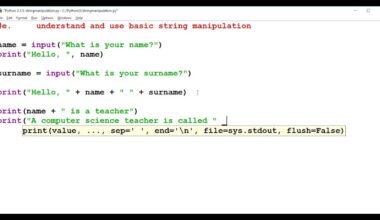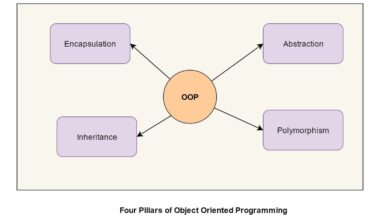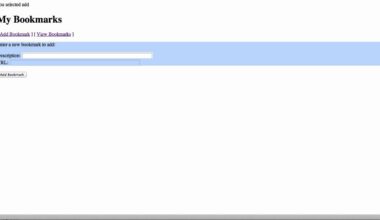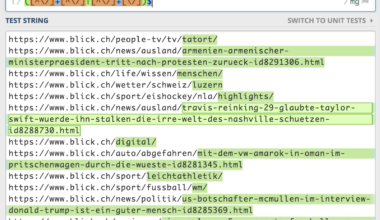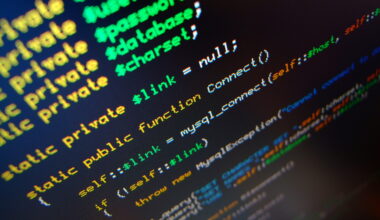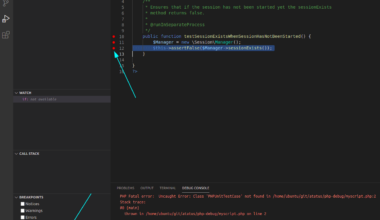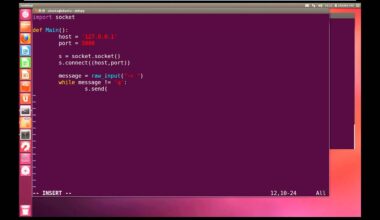Introduction to Python
If you are interested in coding, Python is a great language to learn. It is a high-level, interpreted programming language that has gained a lot of popularity in recent years. Guido van Rossum created Python in the late 1980s, and it has since become one of the most widely used programming languages in the world.
Python has a simple and easy-to-learn syntax, which makes it a great language for beginners. It also has a large and supportive community, which means that there are plenty of resources available for those who want to learn more about Python.
One of the unique features of Python is its use of indentation to define code blocks. This makes the code easier to read and understand, and it also helps to reduce the number of errors that can occur when writing code.
Python is a versatile language that can be used for a wide range of applications. It is commonly used for web development, data analysis, scientific computing, and artificial intelligence. Python is also a popular language for building games, creating desktop applications, and automating tasks.
In the next sections of this article, we will explore the advantages of learning Python, real-life applications of Python, and resources for learning Python. If you are interested in coding, Python is a language that you should definitely consider learning.
Advantages of learning Python
Python has become one of the most popular programming languages in the world for several reasons. Here are some of the advantages of learning Python:
1. Easy to learn and use:
Python has a simple and easy-to-learn syntax, making it an excellent language for beginners. It has a straightforward approach to coding, making it easy to understand even for those without a programming background.
2. Versatile language:
Python can be used for a wide range of applications, such as web development, data analysis, scientific computing, and artificial intelligence. Python is also a popular language for building games, creating desktop applications, and automating tasks.
3. Large community support:
Python has a large and supportive community, which means that there are plenty of resources available for those who want to learn more about Python. This community also helps to ensure that Python remains up-to-date and relevant.
4. High demand in the job market:
Due to its versatility and ease of use, Python is in high demand in the job market. Many companies are looking for Python developers, making it a valuable skill to have in today’s job market.
5. Great for data analysis:
Python is widely used for data analysis and visualization. It has several libraries such as NumPy, Pandas, and Matplotlib that make data analysis much easier and faster.
6. Open-source language:
Python is an open-source language, which means that it is free to use and distribute. This makes it accessible to anyone who wants to learn how to code, regardless of their financial situation.
Overall, learning Python can be a great investment in your future. It is a versatile language that is easy to learn and use, and it has a wide range of applications in various industries. With its growing popularity and demand in the job market, learning Python can open up many opportunities for your career.
Real-life applications of Python
Python is a powerful language that has found its way into many real-life applications. Here are some examples of how Python is used in different industries:
1. Web Development:
Python is widely used for web development, and it has several frameworks such as Django and Flask that make it easier to build web applications. Python’s simplicity and ease of use make it a popular choice for building complex web applications.
2. Data Science and Machine Learning:
Python is a popular language for data science and machine learning. Its simplicity and readability make it easy to work with large datasets, and it has several libraries such as TensorFlow, Keras, and Scikit-learn that make it easier to build machine learning models.
3. Finance:
Python is widely used in the finance industry for tasks such as risk management, financial analysis, and algorithmic trading. Python’s libraries such as NumPy and Pandas make it easier to work with financial data and perform complex calculations.
4. Gaming:
Python is also a popular language for building games. Its simplicity and ease of use make it a popular choice for beginners who want to get into game development.
5. Automation:
Python is widely used for automation tasks such as web scraping, data extraction, and task automation. Python’s libraries such as Beautiful Soup and Selenium make it easier to automate these tasks.
6. Education:
Python is a popular language for teaching programming in schools and universities. Its simplicity and readability make it easy for beginners to understand, and its versatility makes it ideal for teaching a wide range of programming concepts.
Overall, Python’s versatility and ease of use make it a popular choice for a wide range of industries. Its growing popularity and demand in the job market make it a valuable skill to have for anyone looking to pursue a career in programming. If you are interested in any of the above industries, learning Python can be a great investment in your future.
If you are interested in learning Python, there are plenty of resources available online. Websites such as Codecademy, Udemy, and Coursera offer online courses that cover everything from the basics of Python to advanced concepts in data science and machine learning. You can also find several books and tutorials on Python, which can help you get started with the language.
In conclusion, Python is a powerful
Resources for learning Python
Learning Python has never been easier, thanks to the vast resources available online. Here are some of the best resources for learning Python:
1. Online Courses:
Online courses are a great way to get started with Python. Websites like Codecademy, Udemy, and Coursera offer a range of courses for beginners and advanced learners. These courses are designed to teach you everything from the basics of Python to advanced topics like machine learning and data analysis. Some of these courses are free, while others require a subscription or one-time payment.
2. YouTube Tutorials:
YouTube is an excellent resource for learning Python. There are many channels dedicated to teaching Python, and they offer a range of tutorials for beginners and advanced learners. Some of the popular YouTube channels for learning Python are Corey Schafer, Tech With Tim, and Sentdex.
3. Books:
Books are a great way to learn Python, especially if you prefer a more structured approach. There are many books on Python, ranging from beginner-friendly to advanced topics. Some of the popular books on Python are “Python Crash Course” by Eric Matthes, “Learning Python” by Mark Lutz, and “Python for Data Analysis” by Wes McKinney.
4. Python Documentation:
Python has extensive documentation available online, which is an excellent resource for learning Python. The documentation covers everything from the basics of Python to advanced topics like machine learning and data analysis. The documentation is regularly updated, making it an excellent resource for staying up-to-date with the latest features and changes in the language.
5. Python Community:
Python has a large and supportive community, which is an excellent resource for learning Python. The community includes developers, enthusiasts, and experts in Python, who are always ready to help beginners and answer their questions. You can join online forums like Reddit’s r/learnpython or attend Python meetups in your area to connect with the community.
6. Python IDEs:
Python has several Integrated Development Environments (IDEs) that make it easier to write, test, and debug Python code. Some of the popular Python IDEs are PyCharm, Spyder, and VS Code. These IDEs offer a range of features like code completion, debugging, and syntax highlighting, making it easier to learn and write Python code.
In conclusion, learning Python has
Final thought
In today’s digital age, coding has become an essential skill that can open up many opportunities in various industries. Python is a versatile language that is easy to learn and use, making it an excellent language for beginners. Its simplicity, readability, and large community support have made it one of the most popular programming languages in the world.
Learning Python can be a valuable investment in your future, as it has a wide range of applications in various industries like data science, web development, finance, gaming, and automation. With its growing popularity and demand in the job market, Python has become a sought-after skill for companies worldwide. By learning Python, you can enhance your career prospects and take advantage of the many opportunities that come with it.
There are plenty of resources available online for learning Python, such as online courses, books, YouTube tutorials, and Python documentation. These resources can help you get started with the language and provide a structured approach to learning. Additionally, joining the Python community and attending meetups can help you connect with like-minded individuals and experts in the field.
In conclusion, learning Python is a great investment in your future that can help you build a successful career in various industries. With its versatility, ease of use, and large community support, Python has become one of the most popular programming languages in the world. So, if you’re interested in coding, Python is undoubtedly a language that you should consider learning.











